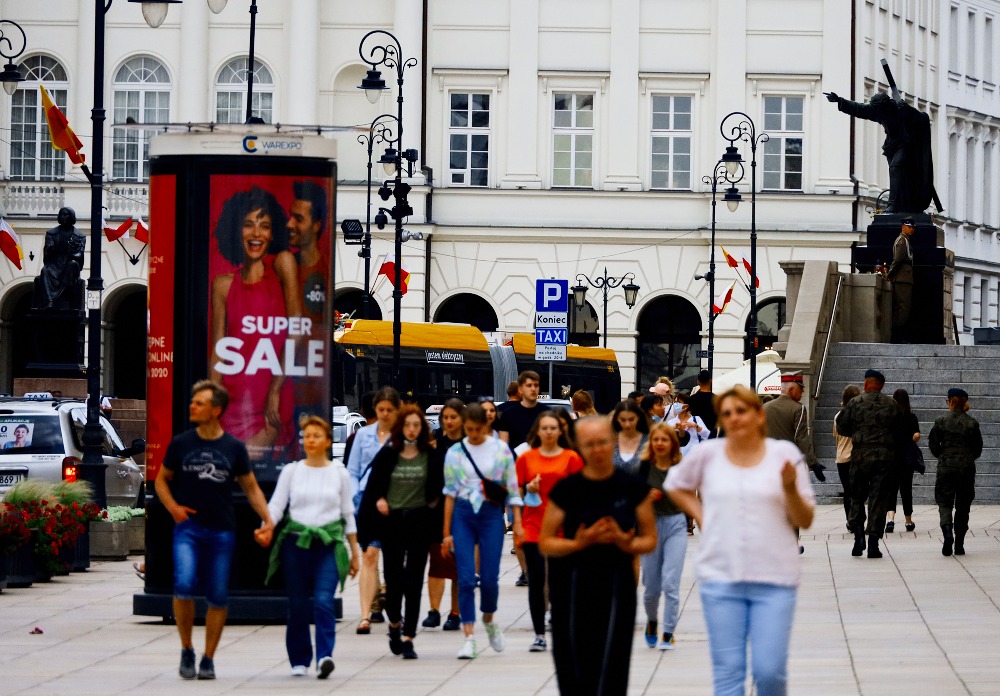A new poll from IBRiS has found that thanks to income growth under the ruling conservative government, Poles now feel they have something to lose, especially during the pandemic, which could present a problem for Law and Justice (PiS) during election time.
IBRiS presented a detailed analysis of the poll results during the Economic Forum in Karpacz in Southern Poland.
According to Marcin Duma, the head of IBRiS, the divide between a liberal opposition concentrating on freedoms and the conservative right concentrating on security and a strong state is no longer fully applicable. This cleavage still worked during the presidential election but has broken down because of the pandemic.
The high rates of infection and mortality during the second and third waves of the pandemic undermined people’s feeling of security. The ruling party also irritated many with its decision to tighten abortion regulations.
The research points to a paradox.
The ruling party in Poland has improved the financial situation of millions of Poles but that has created the problem of increasing aspirations and leaving people afraid of losing their gains. Other polling research confirms this, showing that in six years the number of Poles who have savings has risen from 40 to 61 percent.
If most Poles aspire to be middle class and think they are middle class, the political implications could be seismic.
The Polish right wing has benefitted electorally from helping those who had been the victims of the economic reforms of the 1990s and 2000s. A mix of social spending and rising incomes, together with the virtual elimination of unemployment, has given the ruling party the fuel that has propelled it towards electoral success, but it is a form of success that has now led to an increase in the number of people aspiring to be middle class.
The ruling party, Law and Justice (PiS), seeing that the pandemic slowed down growth and made people feel insecure, put forward the “Polish Deal” program, which is made up of making the tax system more progressive, making housing finance more accessible for families, housing construction easier, and significant increases in state spending on health and infrastructure.
The program failed to connect with the public, because new aspirational voters worried that more progressive taxation would hit their pockets. At the same time, those who have until now been content with self-reliance have, as a result of the pandemic, become more willing to ask for state help. The IBRiS research indicates that voters prefer security to personal freedom.
Another important change in the offing is that ruling party voters are not only dressing like the middle class but also adopting some of the middle-class liberal stances with more tolerance for LGBT, access to abortion, more criticism of the Catholic Church, support for lower taxes, and skepticism towards more welfare spending.
The problem for PiS is that the traditional middle class, despite its greater willingness to accept state aid, is still hostile to redistributive policies, fearing they will affect the middle class’ material status in society. This may mean welfare spending is no longer the electoral gold it once was. If most Poles aspire to be middle class and think they are middle class, the political implications could be seismic.





